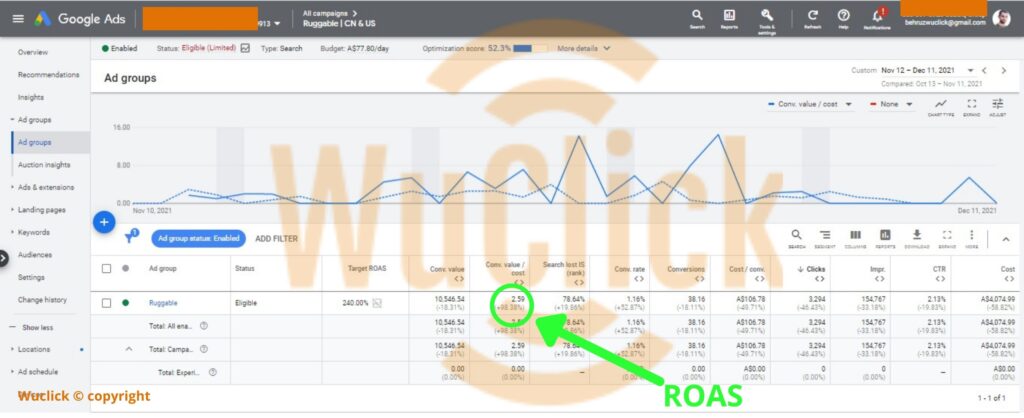Google ads (AdWords) Management
(One of the cheapest in the industry)
Not Convinced Yet? Check out my case studies below…
• Avg. CPC optimization

Avg. CPC of a Google ads account dropped from $2.45 to $0.87 in 50 days while number of conversions stayed at the same level.
• Increasing Conversions

Increased the daily conversion rate by almost 3 times in 40 days.
• Reducing Cost

The cost has dropped by almost 60% and conversions increased by 8% in month to month comparison
• ROAS improvement (2X)

In a Search campaign, ROAS increased by almost 100% Month to Month while Cost per Conversion also dropped.
• Higher conversions

Shopping campaign month to month performance, reduced ad spend and increased conversions
Let’s work together
Testimonials: